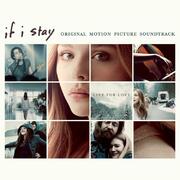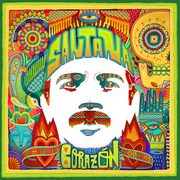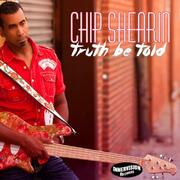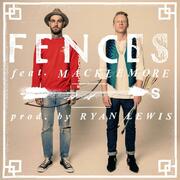New York, NY (Top40 Charts/ Uwe Gronau official website) Despite all the problems in the world today, versatile German composer and keyboardist Uwe Gronau says, "I think humans are smart enough to create a good society for future generations, and one of the keys is the utilization of music." The theme of pondering the future helped inspire the music on Gronau's latest album, Thoughts of Tomorrow.
Gronau strongly believes that art, and specifically music, is a tie that binds together every human from all countries and cultures. "There are special things in life that can only be described by music and art. If you try to open the secrets simply with words, it is impossible, and the secret will not exist anymore. Not even the military or police could calm down the restlessness of people who have a presentiment or foreboding of life without secrets and wonder. Art is an absolute necessity for humans to live a good life on this planet."
Uwe Gronau (pronounced ooo-vuh grow-now) is a master of many musical styles with numerous eclectic recordings. His musical enthusiasm and boundless creativity cannot be contained. Primarily a keyboardist, on some tunes he plays solo piano, on others synthesizer or organ, and often he mixes together several keyboards, at times with bass, percussion, drums or other sounds. His music ranges from new age to space, from jazzy to progressive-rock, from ambient or avant-garde to extremely melodic with pop sensibilities. He only performs and records original music. Thoughts of Tomorrow was produced by Gronau with his longtime musical associate
Clemens Paskert.
Thoughts of Tomorrow and his other most-recent albums are available worldwide online from CDbaby.com and Amazon.com, and from various digital download locations such as iTunes. For more about Gronau, you can visit his English-language website at myspace.com/uwegronaumusic or his German-language website at uwe-gronau.de.
Gronau has numerous previous CDs (some primarily available in Europe). Several are mostly instrumental music -- Midsummer,
Seven Paintings, Sonnentempel, Nightwalker and Intuition.
Others feature Uwe singing on many selections -- Children, The Beauty of the Sea, Someday, Ciel, Time is a Sound, Full Moon Forest and Time Rider. His latest albums -- Midsummer, Time Rider, Visions and Flight 14 -- have been marketed internationally and all have climbed into the Top 5 on the monthly international Zone
Music Reporter Top 100 airplay chart.
Additionally Gronau has played on recordings by other artists including Luna Blanca and Angelique Damschen (also known as Aileen Rose). Gronau also is an author who wrote the acclaimed novel Senor Morales, a fantasy journey through
Europe with a search for a special Spanish musical instrument. The novel led to an audio-book version with music and speaking by Gronau. He also has published a book of short stories, The
Snowman from Wagenitz.
The music on Thoughts of Tomorrow was inspired by wide-ranging ideas and feelings. The album begins with the upbeat tune "Brazil" which Gronau says he wrote as a tribute to the world football/soccer championship games held there. The music also features a strong organ solo in the middle. "I have always been a great fan of Keith Emerson and since I was a child a dreamt of playing a Hammond B-3 organ. I finally bought one in New York City in 1980 and it became my most beloved instrument."
A trip to the Bahamas inspired "At The Beach" with its slow synth and acoustic guitars. "Deep in my Heart" is "a song about my childhood, a time when we had rainbows in our eyes and life was a wonder." Gronau describes the uptempo "Make It Happen" as "a very passionate song promoting the idea that if you want something enough and believe in yourself, you can make it happen." "The Secret of House Nr. 15" captures the atmosphere "of parties which are only celebrated when there is a full moon, and from this uncanny house in the woods you look out through the windows and you only see shadows dancing."
Gronau was influenced to compose "
New World" one day after "reading the local paper while having my breakfast and it says war is coming, people are suffering and nations collapsing. But as I sit and drink my coffee, it only affects me mentally. Is this our new world? I long for something better that I cannot define." He says the music of "Journey Part 1 & 2" is "like a trip through my brain when I am nervous, restless, bewildered, confused, struggling, plodding." The tune "Special Movement" "surprised me because it did not feel like music from the past, but music that made me think about tomorrow."
"Hiding Place" is where "you put the special moments of life, and then sometimes you take them out and savour them just like you would a glass of vintage wine." "Festive Day" is "a day of prayer each summer giving thanks." Sometimes Gronau feels he has taken a "
Time Out" and needs "to be put back into time and started up again." To explain "First Contact," Gronau says, "I'm a shy human being and when I meet people I have never met before, it's like making first contact with an alien." "The Magician" is like a musician "because both communicate with a secret magic language that does not need words."
Gronau states, "Everyone wants to have a look into the future, so they try to find a prophet who can do this for them and tell them whether their wishes will come true. I made the music for the tune 'Prophet Talk' using the Prophet 5, a legendary synthesizer from the Eighties."
Gronau was born and raised in the Rhineland in northwest Germany, and grew up in Dusseldorf and Bocholt (where he currently resides) which is only a couple of miles from the Dutch border. "In the '70s and '80s the Netherlands were more involved in the evolution of jazz, pop, rock and soul than Germany, so I profited from this situation and heard much great music." Uwe began playing piano at age six and grew up immersed in music as the son of a choir-leader, orchestra-conductor, music-school teacher and piano instructor.
In his early years Uwe studied classical music, but soon became passionate about jazz and rock artists such as Brian Auger, Keith Emerson, Patrick Moraz and Refugee, and Joe Zawinul and Weather Report. As Gronau got older, his musical tastes expanded to include Supertramp, Jethro Tull, Gilbert 'O Sullivan, Keith Jarrett, Sting,
Peter Gabriel and
Dream Theater. When Uwe was 14 he began to play in a series of bands and built a reputation in the area for his musicianship and professionalism. One thing that always set Gronau apart from many other musicians is that from the beginning and continuing to today, Gronau has always played original material and has never covered compositions by others. In college, Gronau majored in music, German and theater-science.
Gronau's band Sternberg recorded two albums, performed concerts frequently, won a regional music contest, was broadcast on Germany's main radio channel (WDR), and also won a film music award (for the soundtrack of "Don't Destroy the
Rainbow Above Us") at the International Santander Film Festival in Spain. Gronau's next group was the synth-pop trio Fabrique. They performed the music for the German science-fiction TV-series "Orion Space Patrol," made recordings and videos, appeared on TV shows, and wrote the song "Secret Land" which became a Top 10 global hit for the singer Sandra. Gronau moved on to the funky rock band Pont Neuf and recorded an album with them before going solo.
"When language stops working and makes no more sense, music starts and serves as a translator," explains Gronau. "Things you can't talk over you have to be silent about because then the secret remains. It should be the duty of everyone in the world to learn an instrument. This would help the contact between the different worlds we live in and keep the communication from being inaudible."
























